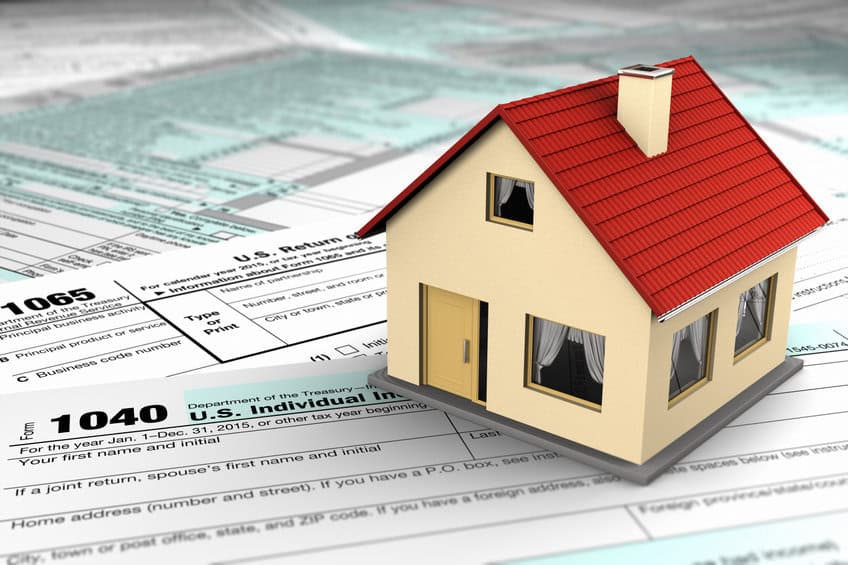Understanding property taxes and their implications can be a complex task for homeowners. In a fluctuating real estate market, property assessments may not always reflect the true value of a home, leading to unfair tax burdens. This is where property tax appeal assistance becomes crucial. By leveraging expertise in real estate and taxation, professionals can guide homeowners through the intricate process of appealing property taxes, ensuring that assessments are accurate and equitable.
Understanding Property Taxes and Their Impact
Property taxes are essential to funding local services such as schools, roads, and emergency services. These taxes are typically based on the assessed value of a property, which is determined by local authorities. However, discrepancies in assessments can lead to homeowners paying more than their fair share.
The assessment process involves evaluating various factors, including property size, age, location, and recent sales data of similar properties. However, market volatility, improvements, or changes in neighborhood dynamics can sometimes result in inaccurate assessments.
The Role of Property Tax Appeal Assistance
Property tax appeal assistance serves as a valuable resource for homeowners seeking to challenge and potentially lower their tax assessments. Professionals offering these services employ their knowledge of real estate and local tax regulations to identify inaccuracies and build a compelling case for appeal.
These experts begin by thoroughly reviewing the property’s current assessment and comparing it to comparable properties in the area. This comparative analysis helps determine whether an assessment is disproportionately high. They also scrutinize the methodologies used by assessors and identify any mistakes or oversights.

The Appeal Process
Navigating the property tax appeal process can be overwhelming without proper guidance. It starts with understanding the local jurisdiction’s guidelines and deadlines for filing an appeal. Missing these deadlines can result in the forfeiture of the opportunity to appeal for that tax year.
Once the decision to appeal is made, the next step involves collecting evidence to support the claim. This includes gathering information on recent sales of similar properties, obtaining appraisals, and compiling photographs or documents that highlight discrepancies in the assessment. Accurate and comprehensive documentation is key to building a successful appeal.
After gathering relevant evidence, a formal appeal is submitted to the tax assessor’s office or a designated appeals board. This written submission details the grounds for appeal and presents supporting documentation. This submission must be clear, concise, and professionally prepared.
The appeals board may schedule a hearing, providing an opportunity for the homeowner or their representative to present their case. This hearing is a critical part of the process; a well-prepared presentation can significantly influence the outcome. Homeowners are encouraged to clearly articulate their arguments and respond to any questions the board may have.
How Professional Assistance Enhances Success
While homeowners can attempt to appeal property taxes independently, enlisting professional assistance enhances the likelihood of a successful outcome. Real estate and tax professionals bring an understanding of local market trends, assessment practices, and legal frameworks that are vital for crafting a compelling case.
These experts also offer an objective perspective, identifying potential weaknesses in a homeowner’s case and providing strategic advice on strengthening it. Their experience in negotiation can be particularly beneficial when interacting with tax assessors or appeals boards.
Moreover, professionals often have access to comprehensive databases and tools that aid in accurate property comparisons and valuations. This access allows for precise analyses that support the appeal, increasing the chances of reducing the tax burden.
Challenges and Considerations in the Appeal Process
Although appealing property taxes can result in significant savings, it is not without its challenges. The process can be time-consuming and may require meticulous attention to detail. Homeowners must be prepared to invest effort in gathering evidence and presenting their case persuasively.
There is also a risk that appealing an assessment might lead to an increase in property taxes if it is determined that the property was undervalued. However, professional assistance mitigates this risk by ensuring that the appeal is well-grounded and based on strong evidence.
Homeowners should also be aware that once an appeal decision is made, it may take effect for only a single tax year. Continuous monitoring of assessments and market trends is essential to ensure accurate assessments in subsequent years.
The Financial Benefits of a Successful Appeal
The financial implications of a successful property tax appeal can be substantial. By achieving a fair assessment, homeowners can enjoy lower annual taxes, leading to significant savings over time. These savings can be redirected towards home improvements, mortgage payments, or other financial goals.
Lower property taxes may also increase the attractiveness of a home to potential buyers, as prospective homeowners often consider the long-term tax burden when making purchasing decisions. This, in turn, can enhance a property’s marketability and value.
Additionally, the appeal process can uncover errors in property records or assessments that, once corrected, provide ongoing benefits beyond immediate tax savings. This transparency contributes to a fairer, more efficient taxation system for all property owners.
The Role of Real Estate Professionals in the Process
Real estate professionals can play a pivotal role in guiding homeowners through the tax appeal process. By providing insights into market trends, valuation methodologies, and local regulations, they equip homeowners with the knowledge needed to make informed decisions.
These professionals often collaborate with appraisers, ensuring accurate and unbiased valuations that form the cornerstone of a successful appeal. Through their networks, they facilitate access to the resources and expertise needed to build a persuasive case.
Furthermore, real estate agents can offer ongoing support by monitoring changes in property assessments and advising homeowners on when it may be advantageous to pursue an appeal. This proactive approach ensures that homeowners continue to benefit from fair assessments year after year.

The Future of Property Tax Appeals
As technology evolves, the property tax appeal process is likely to become more streamlined and accessible. Digital platforms may simplify document submission and communication with tax authorities, reducing administrative barriers for homeowners.
Advancements in data analytics could also enhance the accuracy of property assessments, minimizing the need for appeals. However, as long as discrepancies remain, professional assistance will continue to be invaluable in achieving equitable taxation.
In an environment where homeownership costs are a significant consideration, property tax appeal assistance offers a path to fairness and financial relief. By empowering homeowners with the tools and expertise needed to navigate assessments, this service remains a vital component of responsible property management.
Achieving Fairness in Property Taxation
Property tax appeal assistance is an essential service for homeowners looking to ensure fair taxation. By leveraging professional expertise, homeowners can navigate the complexities of the appeals process and achieve more accurate assessments.
In a challenging real estate landscape, securing equitable property taxation contributes to financial stability and peace of mind. As professionals continue to refine and adapt their services, the pathway to fair property assessments becomes more accessible, benefiting individual homeowners and communities alike. Embracing this service not only safeguards financial interests but also upholds the principle of fairness in the property tax system.
Frequently Asked Questions about Property Tax Appeal Assistance
-
What is property tax appeal assistance?
It involves helping homeowners challenge and correct inaccurate property tax assessments to ensure fair taxation based on actual property value. -
Why might a property assessment be inaccurate?
Assessments can be incorrect due to market changes, errors in property details, or discrepancies in valuation methods used by local authorities. -
How does the appeal process work?
The process involves reviewing the assessment, gathering evidence, submitting a formal appeal, and potentially attending a hearing to present the case. -
What evidence is needed for a property tax appeal?
Evidence may include recent sales data for similar properties, property appraisals, photographs, and documentation of any errors in the assessment. -
Can professional assistance improve the chances of a successful appeal?
Yes, professionals bring expertise in real estate and tax regulations, providing strategic guidance and thorough analysis to strengthen the appeal. -
What are the benefits of a successful appeal?
Benefits include lower property taxes, increased property attractiveness to buyers, and potential correction of errors in property records. -
Are there risks involved in appealing property taxes?
There is a risk that assessments could increase; however, professional guidance helps mitigate this by ensuring appeals are well-supported. -
How can real estate professionals assist in the appeal process?
They provide market insights, valuation expertise, and ongoing support to ensure accurate assessments and guide homeowners through the process.













